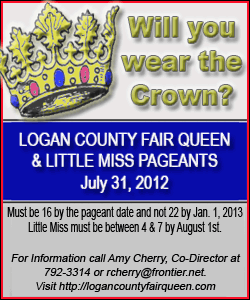 Around the room several other aldermen said they, too, had
been receiving calls about the new state-permitted electronic gaming
machines. It was concluded that everyone in the room with the
exception of Mayor Keith Snyder had received similar calls. Around the room several other aldermen said they, too, had
been receiving calls about the new state-permitted electronic gaming
machines. It was concluded that everyone in the room with the
exception of Mayor Keith Snyder had received similar calls.In
May, at the first meeting of the council this fiscal year, Snyder
shared with the aldermen that the city currently has sufficient
ordinances in place to prohibit the legalized gambling.
Snyder had read an article in the State Journal-Register that
explained that many of the original ordinances in cities around the
state were already sufficient to prohibit gambling. As a follow-up,
he asked city attorney Bill Bates to contact the gaming commission
and verify that the city of Lincoln was included in that statistic.
Bates heard from Emily Mattison, the acting deputy general
counsel of the Illinois Gaming Board, that Snyder's conclusions were
correct.

During that meeting it was Neitzel who then asked when the
ordinance had been passed. Bates said the ordinance had been written
in the mid-1960s and then amended in 1987 and 1997. He said he felt
the original prohibition would have been written in the early
version, and he doubted the amendments made in '87 and '97 would
have had any effect on it.
Neitzel then emphasized no one on the current council would have
been involved in making that decision.
The issue of video gaming or gambling came to the city in 2010.
The state of Illinois, looking to beef up its own revenues, had
passed gaming laws that would legalize gaming with the use of new,
state-approved video machines. With this new program, players would
no longer be playing "for entertainment purposes only" but would be
able to play and win money.
Business establishments where the games were located would
benefit financially, just as they do now with the old-style
machines, and in addition, the state would draw a share of the
gaming proceeds.
The state's plan included making the current machines illegal.
This meant that the businesses in Lincoln and throughout the state
would have to either do away with gaming or go with the
state-approved machines.
However, before the program even got off the ground, the state
was plagued with delays due to questions on the contracts they had
signed with game manufacturers and marketers, as well as glitches in
the new centralized computer system for the games.
The state has continued to struggle through these issues and is
still determined that the new machines will be the only option in
the future for establishments such as Logan Lanes.
In the two years that this has been going on, the city has not
had to make a decision, but they have taken the time to hear from
the public, and at last count, the public in general was against
legalized gambling in the city of Lincoln.

In October of 2010, Anita Bedell, the executive director of
Illinois Church Action on Alcohol & Addiction Problems, out of
Springfield, addressed the council on the issue. She said the games
would lead to addiction and the deterioration of family values.
At the same meeting, Snyder said he'd received letters from
Pastor Dustin Fulton of the Jefferson Street Church as well as
Rebecca Van Nydeggen of the Salvation Army speaking out against
legalized gambling.
In January of 2011, Van Nydeggen made a personal appearance in
council chambers and presented a number of statistics showing the
harm gambling can cause, not just in families but also in the
community at large.
[to top of second column] |

The city then decided to have a public hearing on the topic. The
hearing was set for Feb. 22, 2011.
That evening the council chamber was full and bursting with
people who were there to state their cases either for or against the
issue.
Those speaking out against gambling included Bedell; Larry
Crawford and Mike Robbins of Open Arms Christian Fellowship; Fulton;
Amy Wubben, who worked with children who had been taken from
families with addiction problems associated with lottery tickets;
and Ed Carter, who spoke as a concerned citizen.
Dick Anderson of Lincoln American Legion Post 263, Irv Gesner of
the Glass House Tavern, Shawn Taylor of Logan Lanes and Joe Papesch
of Old Joe's spoke in favor of the gaming.
Larry Hartley of Hartley Amusements in Normal also attended,
saying video gaming could fund capital projects in the city of
Lincoln.
Dale Ridgeway of Lincoln spoke of his addiction and the loss of
$60,000 as a result, and Elaine Woolard of Lincoln talked about
growing up with a father addicted to gambling.
At the end of that evening, the unofficial poll of opinion seemed
to indicate that the majority was against allowing video gambling in
the city of Lincoln.
With that meeting behind them and with the struggles of the state
to get the program off the ground, city council members had reached
a point that they were not under pressure to make a decision on the
issue.
Then, with the discovery that the ordinances needed to prohibit
gambling are already in place for the city, it appeared this could
have been a dead issue.

However, Tuesday evening Neitzel said she felt it was something
the city was going to have to vote on.
Alderwoman Melody Anderson noted that before a vote could be
taken, there would have to be a motion for a new ordinance. She said
she felt the topic should be turned over to the ordinance committee
for them to discuss and deliver a recommendation.
Alderman Tom O'Donohue, who chairs that committee, was not
present Tuesday night, but Alderman Jeff Hoinacki, who is also on
the committee, said he would get in touch with O'Donohue and they
would decide what their next step should be.
[By NILA SMITH]
Past related
articles
-
April 29, 2010 --
City briefs: 'Lawnmower Run,' food drive,
gaming machines and more
-
June 25, 2010 --
New Illinois law legalizing video gaming
machine gambling gets mixed local reaction
-
Sept. 14, 2010 --
Video gaming stalled again
-
Oct. 13, 2010 --
City hears warning: Video gambling is
addictive
-
Jan. 26, 2011 --
To gamble or not: Community invited to
speak on video gaming
-
Feb. 22, 2011 --
Gambling: hot topic at tonight's council
meeting
-
Feb. 23, 2011 --
Community speaks out on video gaming
-
May 9, 2012 --
By default, city prohibits video gambling
|